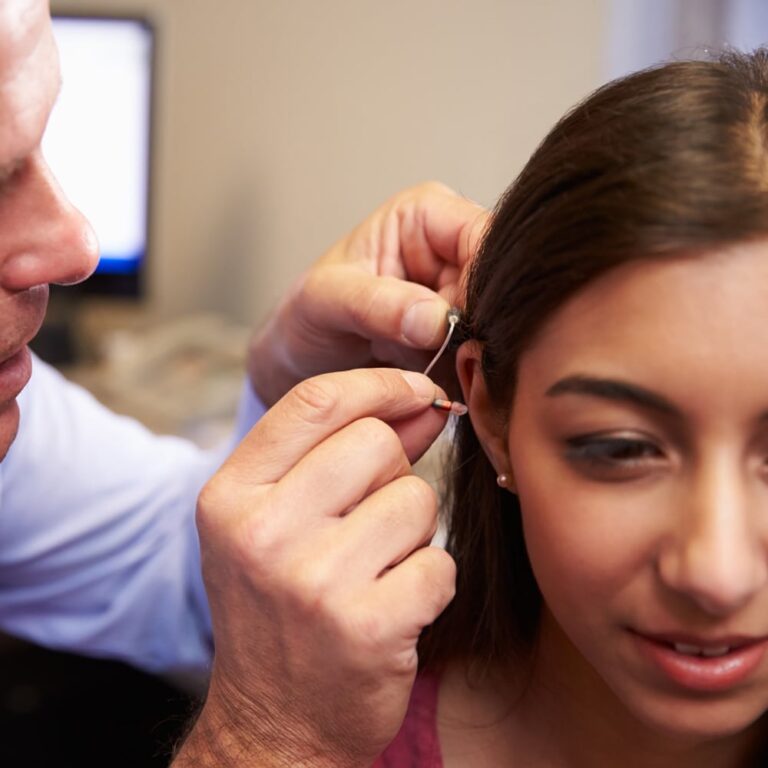If you’re hesitant to invest in hearing aids, you’re not alone. Although, according to the National Institute on Deafness and Other Communication Disorders, “About 28.8 million U.S. adults could benefit from using hearing aids,” only about one in five people who could benefit from a hearing aid actually wears one, reports the Hearing Loss Association of America.
Below we review everything you need to know about getting your first hearing aid, so you can make peace with the decision and start hearing well again.
You’ll See Your Audiologist Several Times

It’s a common misconception that getting hearing aids is similar to getting a pair of glasses in that you can get fit with them and leave without returning for at least a year or two. However, when it comes to hearing aids, know that you’ll need to see your audiologist multiple times over the first few weeks and months to ensure the programming is just right.
The reason you need to do this is because the initial programming of your hearing aids is based on the results of your hearing test, which is conducted in a soundproof booth. Unfortunately, this environment does not mimic real-world listening situations. So when you find yourself out in complex listening situations like at L & J Cafe during happy hour, you’ll likely find you need adjustments made to the programming.
You Likely Need to Wear Two Hearing Aids
You’ll likely be prescribed two hearing aids unless you only have hearing loss in one ear. If this is the case for you, it’s essential that you wear both of them as directed. You should do this because they are calibrated to be worn together, and wearing two can help you localize sounds better.
You’ll Start by Wearing Them for Short Durations
If you waited a long time to seek treatment for your hearing loss, your adjustment period will be longer as well. When you first start wearing your hearing aids, you may be overwhelmed by all the sounds around you that you’ve been missing, so your audiologist will recommend you wear them for short durations at first, and slowly work up until you’re wearing them during all waking hours.
For more information or to schedule an appointment with an expert audiologist, call Tinnitus & Hearing Experts today.